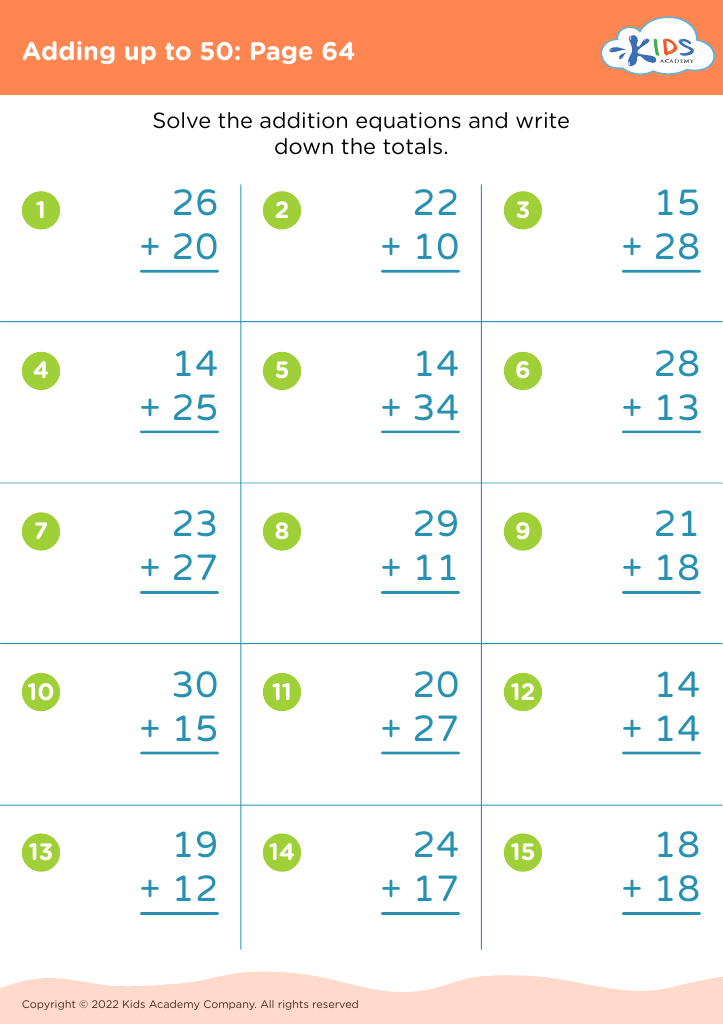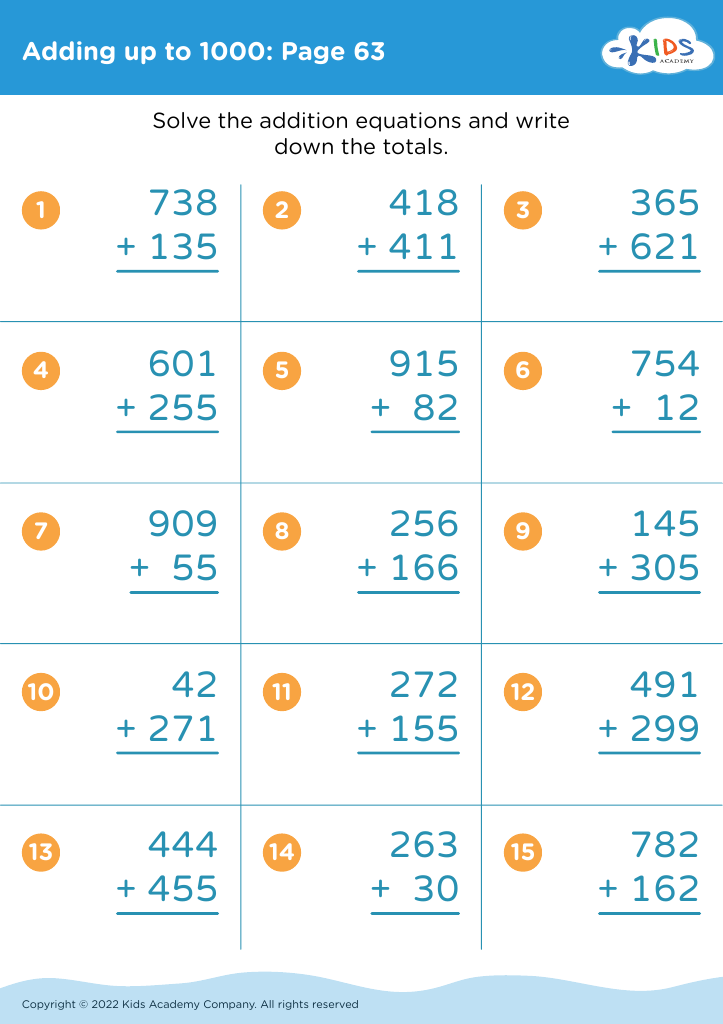Comparing numbers Addition & Subtraction Worksheets for Ages 4-8
4 filtered results
-
From - To
Unlock your child's math potential with our "Comparing Numbers Addition & Subtraction Worksheets" designed for ages 4-8. Our engaging and child-friendly printables help young learners build a strong foundation in basic math skills. Through fun exercises that compare numbers and practice addition and subtraction, your child will develop critical thinking and problem-solving abilities. Perfect for home learning or classroom activities, these worksheets make math enjoyable and bolsters confidence in young minds. Start your child's journey to math success today with enriching and educator-approved resources from Kids Academy!
Understanding comparing numbers, addition, and subtraction in early childhood (ages 4-8) is crucial for several reasons. Firstly, these skills lay the foundation for all future mathematical learning. Comparing numbers teaches children about differences in quantities, which is a fundamental concept in math. This skill helps kids understand the size, value, and order of numbers, building a sense of number magnitude and helping them make sense of their world.
Addition and subtraction are basic arithmetic operations that children will use daily. Learning these operations helps kids develop problem-solving skills and logical thinking. They're not just learning how to calculate but also learning how to think critically, which translates to better decision-making and analytical skills in various aspects of life.
Moreover, early proficiency in math has been linked to greater academic success in later years, not just in mathematics but across the entire STEM spectrum. Engaging in comparing, addition, and subtraction activities boosts children's confidence and numerical fluency.
Parents and teachers should support this learning through interactive and engaging activities, making math fun and a part of daily routines. Tools like counting objects, playing educational games, and real-life applications foster a positive attitude toward mathematics, encouraging lifelong learning and curiosity.
























